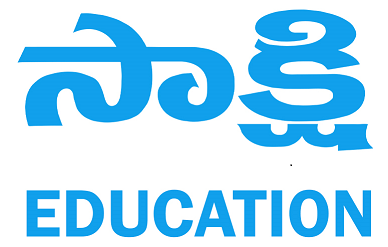March 2020 India and the World
Sakshi Education
- UK Confirmed as 1st co-chair in India-Led Climate Change Initiative CDRI
 The United Kingdom (UK) was confirmed as the first co-chair of the governing council of India-led global Coalition for Disaster Resilient Infrastructure (CDRI).
The United Kingdom (UK) was confirmed as the first co-chair of the governing council of India-led global Coalition for Disaster Resilient Infrastructure (CDRI).
Governing Council of CDRI is the highest policy-making body of the society. The council is co-chaired by India and a representative of another national government nominated by rotation every two years.
The UK Secretary of State for Business, Energy, and Industrial Strategy, Alok Sharma, represented the UK at the first council meeting.
The minister is President of the 2020 UN Climate Change Conference (COP26). He held a meeting with Pramod Kumar Mishra, the Indian Prime Minister's Principal Secretary, over videoconference. The UK will host COP26 in Glasgow in November 2020.
CDRI:
The proposal to establish CDRI was initiated and approved by the Prime Minister Narendra Modi on 13 August 2019. The supporting secretariat was set up in New Delhi, India.
The memorandum and regulations of the CDRI society was prepared by the National Disaster Management Authority. CDRI is a voluntary international grouping, linking governments, UN agencies, banks, private sector groups, and academia to develop the resilience of infrastructure systems to climate and disaster risks.
CDRI aims to bring together the largest number of state heads to generate commitments to combat the effects of climate change and resulting disasters.
India has announced Rs.480 crore to the CDRI for the next five years. It will help fund technical assistance and research projects, setting up offices and covering recurring expenditures under the initiative.
- Cabinet approved MoU signed between India and Germany to enhance Railway sector
The Union Cabinet led by the PM Narendra Modi apprised a Memorandum of Understanding (MoU) signed between Ministry of Railways, GoI and DB Engineering & Consulting GMBH of Germany.
The MoU was signed for technological cooperation in the Railway Sector. The agreement was signed in February 2020.
MoU Provisions:
The MoU will freight operations, passenger operations and infrastructure building and management between the countries in the railway sector.
It will enhance the development of a modern, competitive railway organization, IT solutions for railway operations, marketing and sales and administrative purposes.
It will also improve predictive maintenance, private train operations between the two parties.
- India proposed to set up common e-platform for SAARC nations to combat coronavirus
India has proposed to set up a common electronic platform for all South Asian Association for Regional Cooperation (SAARC) nations.
The proposal was made after Prime Minister Narendra Modi pitched for a regional approach to deal with the pandemic. The information was passed by the Ministry of External Affairs.
Common electronic platform:
India proposed the common electronic platform to the senior health officials of the SAARC on 26 March through video conference.
The aim of the platform is to share knowledge, information, expertise and best practices to jointly combat the spread of coronavirus.
Earlier on 15 March, an India-initiated video conference of SAARC leaders was held. In that conference, PM Modi suggested that health professionals of the member nations could come together to jointly fight against the coronavirus pandemic.
- G20 to inject USD5 trillion into World economy
The G20 nations agreed to collectively inject $5 trillion into the world economy. The move by the countries is to counteract the social, economic and financial effects of the COVID-19 pandemic. The video conference summit was held on 26th March.
G20 Summit Highlights:
Prime Minister Narendra Modi represented India in a video-conference of G20 economies.
PM Modi stressed on a new concept of "globalization that focusses on humanity and collective welfare" rather than individual interest.
The leaders of the G20 countries has agreed to make collaborative effort to develop therapeutic solutions including vaccines, make diagnostics more effective and make testing kits and other equipment more freely available.
The leaders agreed to ensure the flow of medical supplies and critical agricultural products across borders and work together to facilitate international trade.
The countries reaffirmed their commitments to WHO's mandate to fight the pandemic. The members countries agreed to provide resources to poorer countries and come up with a Covid Solidarity Response Fund.
The leaders urged to boost funding for a vaccine for coronavirus.
So far, the coronavirus has infected close to 5,00,000 people across countries and claimed more than 22,000 lives.
- India bagged USD 40 million defence deals with Armenia
 India won a $40 million defence deal to supply 4 indigenously-built weapons locating radars to Armenia in Europe.
India won a $40 million defence deal to supply 4 indigenously-built weapons locating radars to Armenia in Europe.
India won the deal by overtaking Russia and Poland. The move by GoI is to boost the defence sector of the country.
The deal is a major achievement for the 'Make in India' programme in the defence sector.
Highlights:
Under the deal, India will supply 4 SWATHI weapon locating radars. The weapon is to be developed by the Defence Research and Development Organisation (DRDO) and manufactured by Bharat Electronics Limited (BEL) and delivered to Armenia in Europe.
Armenians had conducted trials of systems offered by Russia and Poland but they approved the Indian system, which was developed by DRDO. India began the supply of the equipment to Armenia.
SWATHI weapon:
The SWATHI weapon will help in locating radars.
It provides fast, automatic and accurate location of enemy weapons like shells, mortars, and rockets in its 50-km range.
The weapon includes 81mm (or higher calibre mortars), 105mm (or higher calibre shells) and 120mm (or higher calibre free flying rockets).
The weapon is being developed by DRDO's Electronics and Radar Development Establishment (LRDE)
SWATHI can simultaneously handle multiples projectiles fired from different weapons at different locations.
The weapon can adjust the fire of its own artillery weapon also.
- India-EU to work together on Integrated Local Energy Systems
India and the European Union agreed to work in the Integrated Local Energy System during India's Smart Utility Week 2020.
As per the agreement, the countries will work upon clean energy and climate.
Highlights:
The partnership will foresee strengthened cooperation in energy research and innovation, especially in renewable energy and its integration in the energy system.
The collaboration will make energy supply cleaner, more efficient, and affordable to all.
The Indo-EU flagship call is in line with both the European Union's and India's involvement in Mission Innovation (MI). MI is a global initiative of the European Commission and 24 countries. MI committed to reinvigorate and accelerate global clean energy innovation with an aim to make clean energy widely affordable.
It will also give novel solutions encompassing local integration across various energy vectors and increase renewables share in the energy mix and high energy efficiency.
- India signs deal with the US for Air Force One
The desi "Air Force One" will be ready to fly the President or Prime Minister by 2021. It is equipped with advanced missile defence measures.
India has signed around $190 million to deal with the US for two self-protection suites (SPS).
Air Force One:
The system will be retrofitted on the two custom-built Boeing-777 aircraft, which was earlier acquired for long-haul VVIP travel.
The system has fully-integrated advanced missile approach warning sensors, defensive electronic warfare systems, infra-red (IR) counter-measures, digital radio frequency jammers, and other such contraptions under the overall SPS.
It has the capability to serve as an airborne command centre to direct military operations during nuclear, chemical, biological (NBC) attacks.
The two extended-range B-777s will also have encrypted satellite communication facilities.
It will replace the almost 30-years-old 747-400 jumbo jets being currently used for VVIP flights.
The SPS will ensure a robust capability for automated detection and jamming of different kinds of missiles.
Published date : 30 Mar 2020 08:15PM


















